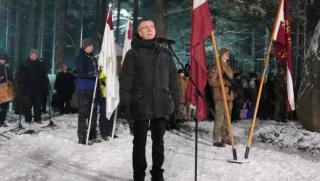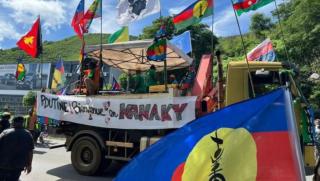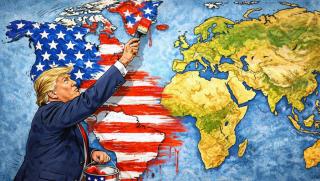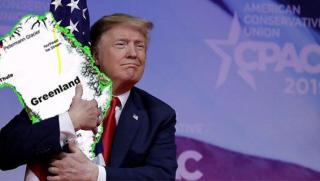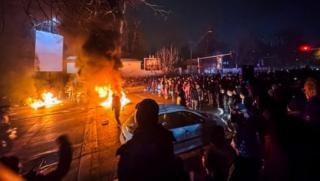"Операция зората на Одисеята" като че ли не е най-подходящото име за военната кампания в Либия, която бе започна от САЩ и няколко от техните европейски и арабски съюзници в изпълнение на резолюцията на Съвета за сигурност на ООН 1973.
“Operation Odyssey Dawn” hardly seems the best name for the military campaign in Libya, launched by the US and several of their European and Arab allies to implement the UN Security Council Resolution 1973.
After all, the Libyan war (“brief,” as anticipated by the new “coalition of the willing,” or “long,” as predicted by Muammar Gaddafi) evokes reminiscences of bloody sagas in the Balkans, or struggles in Iraq and Afghanistan, rather than those of Greek epic lore.
Militaries, however, don’t necessarily have to be good at choosing catchy code-names, be it "Operation Odyssey Dawn” or “Shock and Awe” or “Enduring Freedom” or “Desert Fox”. Their job is to obey orders and accomplish the mission, while the job of the politicians is to see through strategy and make responsible decisions, carefully weighing all of the pros and cons.
The recent UN Security Council resolution 1973, initiated by the leaders of France and Britain and supported by US President Barack Obama after stormy debates in New York, was considered by its architects as the only practical way to stop the blood-thirsty Libyan leader Gaddafi from slaughtering his own people. The resolution kicked in after weeks of ferocious fighting and just hours before another bloodbath in the town of Bengazi – a desperate, last-minute move, made in a situation when there is, seemingly, no other option; when action and inaction are equally risky.
Regardless of how long would the new US-NATO Libyan Odyssey last and what would be its practical results, the resolution 1973 in a way marked a watershed in Russia’s relations with her key Western partners. To my regret, the logic of Russian side and Russia’s position in Libyan crisis is still largely ill-interpreted or misunderstood by analysts and media both at home and abroad.
A couple of weeks ago, RT invited me to discuss the Libyan crisis on its news program. I was asked what the probability was that the new UN Resolution, which endorses a multi-national military operation in Libya, would be vetoed by Russia. After all, Russia is known for its opposition to the very idea of foreign intervention in the domestic affairs of sovereign states. I replied that a veto is not the only way to voice Russia’s reservations, however strong those reservations might be. I said that there was also another option. Another, more pragmatic way to say “no” – instead of vetoing, Russia can abstain from the vote altogether.
I said that by doing so, Russia would not openly hamper the efforts of its Western partners, but at the same time make it clear that it doesn’t agree with the solution proposed and would neither join, nor support “the coalition of the willing” in Libya.
As it turned out, this is exactly what transpired. Russia abstained from voting on the resolution, although many considered this to be a rather remote scenario. However, by doing so, Moscow has found itself in a highly-respectable company with other UN Security Council members, including BRIC countries and Germany, a NATO heavy-weight member who for the first time openly rejected the Western line.
While many analysts call Russia’s position on Libya inconsistent and contradictory, I find it quite rational and pragmatic, putting Moscow in a win-win situation regardless of how the Western military operation in Libya ends. Allow me to elaborate a bit on this.
First, by taming the temptation to veto UN Resolution 1973, Moscow avoided another serious clash with the West and the inevitable accusations that it secretly coddles dictators all over the world. Russia’s abstention contains the following message to its Western partners: ‘we don’t consider military interference in Libya as the optimal way of settling the problem; we foresee many risks and drawbacks, but if you are ready to take the responsibility and bear the full brunt of the consequences – go ahead, this is your choice, not ours.’
Second, by denouncing the military option Russia would likely win the sympathy of Libyans who pledge to fight against “foreign aggression,” as well as the backing of the Arab world. Symbolically, the highly emotional statement by Russian Prime Minister Vladimir Putin, who warned against “killing civilians under the pretext of protecting civilians,” echoes Arab League head Amr Moussa, who lashed out at Western military strikes on Libya.
“What has happened in Libya differs from the goal of imposing a no-fly zone,” Moussa said just two days after the start of the military operation. “What we want is the protection of civilians and not the bombing of other civilians."
It must be noted that initially the idea of military intervention got support from the Arab League, as well as from the African Union.
Third, by not openly siding with Colonel Gaddafi, who, at any rate is hardly seen as a political survivor, Moscow leaves the window of opportunity wide open for establishing new relations with the next Libyan leadership, thus safeguarding its vital trade and economic interests in this strategically important North African country, which just happens to be one of the leading producers of oil and gas.
Finally, as President Medvedev noted, Moscow can act as mediator between Libya’s warring sides.
Let me add, that the Western powers seem to have lost this privilege after breaking or severing ties with the Gaddafi regime.
In conclusion, Moscow abstaining from voting on the UN Resolution 1973 looks like a smart move, which does not compromise its principles, while leaving it enough room for maneuver in the mounting conflict that is filled with very unpredictable results.



